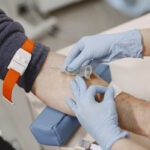What is Prevention of disease and preventive healthcare?
The role of prevention.
A distinction must be made between “prevention,” broadly understood, and the more narrowly defined area of “preventive medical care.” Anything that can prevent a disease can be labeled prevention. Eating a proper diet, getting adequate exercise, losing excess weight, abstaining from smoking, drinking only in moderation and practicing proper sanitation are all examples of prevention. The medical literature has conclusively demonstrated that many individuals can avoid disease and premature death by choosing healthful eating and living habits.
In addition, public health efforts to provide clean drinking water and improve sanitation have been shown to prevent disease and promote longevity. In fact, according to some health experts, most of the increases in life expectancy over time have resulted not from advances in medicine but from improvements in public health.
The role of preventive care.
Preventive medical care, on the other hand, is a much more narrowly defined concept. It includes regular exams and screening tests designed to catch a disease or a health problem before it has a chance to spread.
Three kinds of preventive care are absolutely essential: prenatal care for poor women, tests in newborns for certain congenital disorders and most childhood immunizations.
Cervical Cancer
Early detection of cervical cancer in women is possible through the use of a test called the Pap smear. The test involves taking cell samples from various parts of a woman’s cervix and studying them under a microscope for abnormalities that might indicate cancer so as to catch and treat it at an early stage.
Regular screening is recommended because early detection can lead to lifesaving cancer treatment and because the test results are often inaccurate. For example, studies show that some 20 percent of cervical cancers are likely to be missed by a single screening test. However, as the figure shows, more frequent testing can be very expensive. It also can create “false positives” – incorrect indications that cancer is present – which typically lead to additional tests and, in some cases, unnecessary treatment. Over a lifetime, a woman is more likely to have a false positive than she is to get cervical cancer.
Prostate cancer.
A newly developed blood test called prostate-specific antigen (PSA) can help in the early detection of prostate cancer, a leading killer of men. However, roughly 30 percent of prostate cancers pose no health threat whatsoever because the men who have them die of something else. Moreover, treatment may not prolong life.
High cholesterol.
It is conventional wisdom that detecting and treating high cholesterol prolongs life. After all, high levels of cholesterol have been linked with heart disease, another leading killer. Regular screening for the problem is a recommended part of any regimen of preventive care, with treatment – either in the form of a special diet or drugs – recommended for high levels of LDL cholesterol.
But not everyone with high cholesterol will suffer heart disease and the drugs used to treat the condition can have such side effects as gastrointestinal problems, a higher risk of gallstones and itching of the skin.
Of course, the fact that preventive care is not always cost-effective does not mean that it is wasteful. Diagnostic tests that show freedom from disease may relieve patients’ anxiety and reassure them of good health. Thus, for the most part, preventive care is like a consumer good that creates benefits in return for a cost. It is not like an investment good that promises a positive rate of economic return.







Facebook Comments